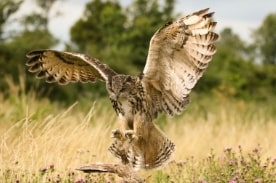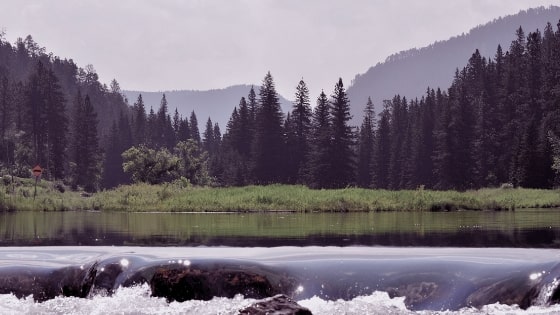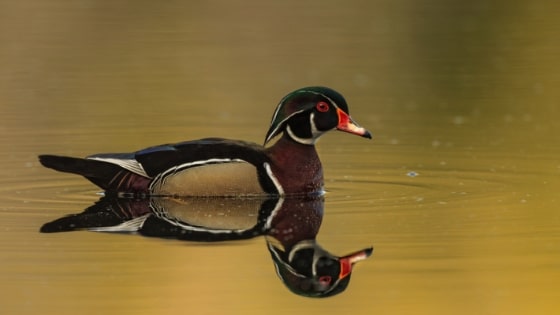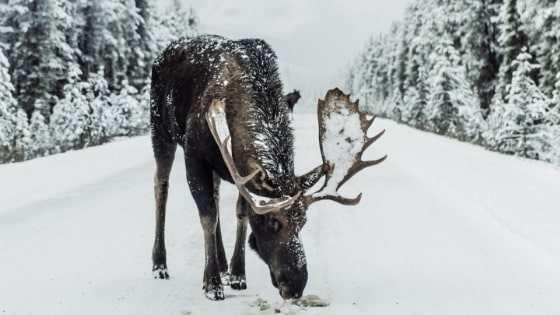
Protect nature in the present and for the future
In Canada, there are 39 National Parks and 8 National Park Reserves and approximately 300 provincial parks that, combined, cover approximately 328,198 square kilometers. With more forested land than nearly any other country in the world, protection and preservation are important to both the federal and provincial governments.

If you’re passionate about the outdoors and our environment, you probably feel the same. Whether you’re interested in working at the federal level or you prefer finding employment in private sector jobs such as hunting lodges, campgrounds, and nature trails and retreats, a diploma in wildlife/forestry conservation can help you learn the skills and knowledge to take the first steps toward a rewarding career that makes an impact. You’ll cover:
-
Wildlife Management. From game birds and waterfowl to mammals and predators, you’ll learn to identify animals, the natural history and biology of different species, and how a population can be managed.
-
Park Management. You’ll cover the National Park System, including recreation and resources, what goes into the building of a park, and managing these areas.
-
Wildlife Law Enforcement. Learn what role law enforcement plays in conservation efforts across the country, including covering topics such as the Canadian National Parks Act, wildlife law violations, and case management.
With seemingly endless tracts of land, populated by various native birds, predators, and mammals, as well as countless kinds of plant life, Canadian wildlife/forestry conservation professionals are responsible for making sure the nature and animals that make Canada beautiful survive and thrive.
Studying Environmental Conservation

Those who’ve studied conservation generally find positions in a variety of locations and career paths. Because 94% of conservation land is public, preserving it is a shared responsibility Canada-wide and most conservation officers work for some sort of government agency. However, it’s possible to also find work at wildlife preserves and rescues, campgrounds, or even utility companies.
A normal day for someone working in wildlife and forestry conservation can include completing paperwork and educating the public. Another day may find you tracking migration patterns of animals or patrolling and enforcing compliance with environmental regulations.
While duties will vary widely depending on the park or province you’re working with, you’ll often find yourself patrolling an assigned route each day. You’ll be making note of anything that might be dangerous for the environment or park visitors, and filing reports with the next steps to address the issues.
Some days can find you issuing tickets to those who’ve violated the environmental laws that are in place. Another day can begin with classes and educational programs at local schools and community centers, lecturing on environmental safety.
The job duties you’re assigned can also be completely different if you’re working on a wildlife preserve. You’ll be helping to rehabilitate injured wildlife, introducing the animals back to their natural habitat, tagging and tracking animals to map migration patterns, and more.
One thing remains the same: no matter what work you do in forestry and conservation, your daily efforts make a positive impact on the land and the people around you.
Preserve the land you love

If you’re interested pursuing a career in the conservation field, you more than likely have a deep love and respect for nature, natural habitats and ecosystems, and ensuring we leave the world in better condition than we found it.
Your passion can lead you toward a career path that doesn’t even feel like work, allowing you to make a difference! Whether you’re interested in preserving acres of forest or rehabilitating injured wildlife, ICS Canada’s flexible Wildlife/Forestry Conservation program can help you take the first steps toward building a better Canada.